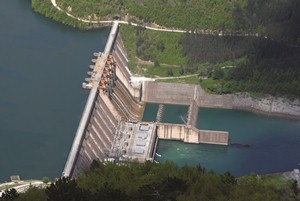As a second wave of Covid-19 causes further economic and social disruption worldwide, data-driven cities, powered by smart infrastructure and solutions, are using data analytics and predictive modelling to help shape their pandemic response to limit loss of life and minimise economic disruption.
Today, the World Economic Forum publishes a new report, Technology and Data Governance in Smart Cities: On the Frontlines of India’s Fight against Covid-19, to share practical approaches that cities in India and around the globe have adopted in response to the pandemic.
The report, produced in collaboration with the Government of India’s Ministry of Housing and Urban Affairs (MoHUA) and Deloitte Touche Tohmatsu India LLP, also highlights the various technology and data governance challenges faced by three Indian cities, Bengaluru, Surat and Pimpri Chinchwad, as well as Tel Aviv, Lisbon and New York.
With more than 460 million urban residents, cities in India have been on the frontline of the fight against Covid-19. The report’s analysis suggests that significant investments in smart city technologies have helped enable a robust response to the pandemic. However, the report cautions, while these technologies can mitigate public health risks and reduce economic damage, they can also be misused.

“For more than a decade, smart city technologies have promised to improve the resilience and responsiveness of cities. This year, that promise has been put to the test in India,” says Jeff Merritt, head of internet of things and urban transformation, World Economic Forum.
“The findings of this report underscore the critical role that data can play in helping cities manage and direct emergency operations during times of crisis. But data alone is not a panacea; realising the potential of smart cities requires strong internal coordination, knowledge sharing and a foundation of good governance.”
The experience of India’s cities and their global counterparts suggests that if cities are to institutionalise and strengthen the use of smart solutions, the following actions need to be prioritised:
- Ensure standardisation and interoperability of data and smart city systems by formulating city-based technology management policies
- Enhance data security and protection through the development of municipal data policies in compliance with national laws and guidelines that ensure citizens’ data security
- Strengthen coordination across agencies through the establishment of new mechanisms for information sharing among city and state governments
- Establish adequately staffed technology and data management organisations beginning with the appointment of a chief city data officer and city data contributors
- Adopt objective indicators for monitoring service delivery by developing assessment frameworks
- Leverage multiple delivery channels for public outreach through implementation of connectivity-related smart solutions
- Recognising the need for new approaches and policies to address gaps in governance, enhance technology’s benefits and avoid harm, India helped launch the G20 Global Smart Cities Alliance in 2019. Last month, the World Economic Forum announced that four Indian cities had been selected to pioneer a new smart-city policy roadmap.

“Through their pandemic responses, cities have begun to realise the enormous potential of data-driven governance. We must build on the momentum to deepen and institutionalise this ‘DataSmart’ work,” says Kunal Kumar, joint secretary and mission director, Smart Cities Mission, Government of India.
“The rapid response of smart cities to tackle Covid-19 has again highlighted the criticality of technology and data-driven decision-making. To make this response sustainable, cities need to continue investing in technology-related capabilities and streamline citizen service delivery processes,” says Arindam Guha, leader, Government and Public Services, Deloitte Touche Tohmatsu India LLP.
Read the full report here
Comment on this article below or via Twitter: @IoTNow_OR @jcIoTnow










